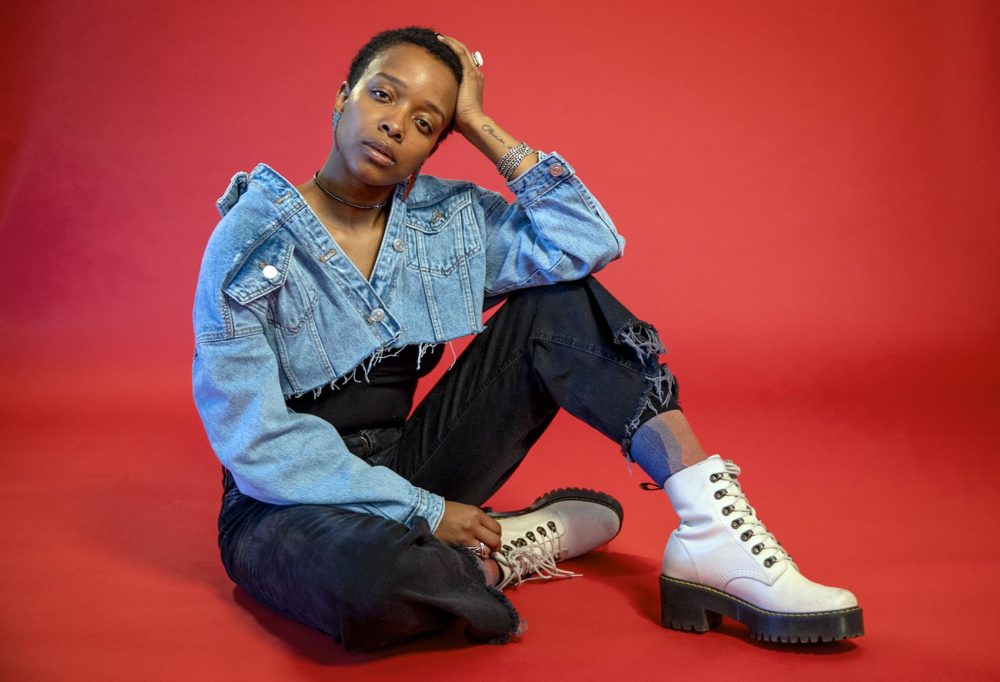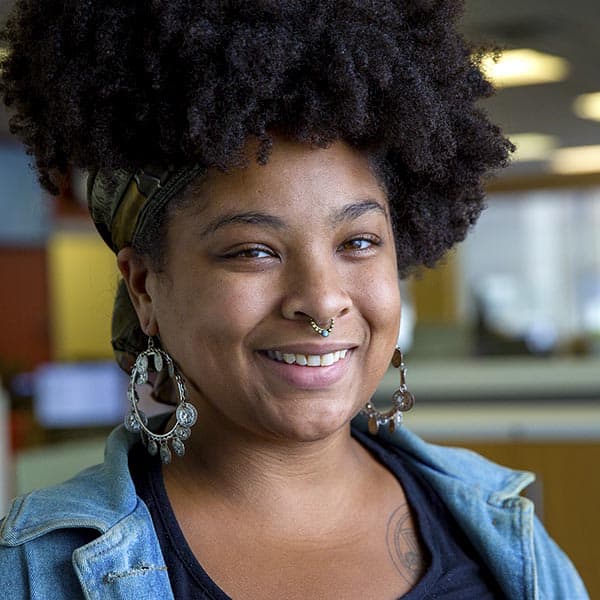Advertisement
Jamila Woods Archives Blackness In 'Legacy! Legacy!'
Resume
Poet and musician Jamila Woods came by The ARTery before her performance at the Isabella Stewart Gardner Museum to discuss her latest album "Legacy! Legacy!" and why she seeks to archive seminal works of black art in her music. I'm still processing our riveting conversation for a broader piece, but, for now, here's an excerpt of our talk:
Jamila Woods: So the title of the album comes from a poem by Margaret Burrows called "What Will Your Legacy Be?" And it's really a poem that goes through all of these amazing black activists and thinkers and names them and what they've done. And it's kind of a poem dedicated to young black people. And it's like, this is what's come before you. What will you do now? What will you add to this? And so I was actually sitting at a friend's house and he had a print of "Legacy! Legacy! above his dining room table. And I was wondering what my album was going to be called. And I looked up and it was almost like it clicked in that moment, like that poem. And just also Margaret Burrows being an artist, that's really influential to me. That was the title, because the whole album is not only paying homage to people who have inspired me, black and brown thinkers, but also myself asking the question, you know, what have these folks taught me and how has that influenced how I now move through the world and how I think about myself and what I can do and the power that it's given me.
Arielle Gray: I wanted to talk a little bit about track on the album "Basquiat," obviously named after the very famous artist and painter. Can you explain that line? "My smile is not employed. You can't police my joy." What is it like to have your joy in your anger constantly policed in a society like ours?
Woods: I was thinking about the way that Basquiat kind of presented as like a quieter, you know, kind of like genius child, like very approachable black man. And there's an interview where he's being asked like, 'do you ever get angry?' And just the idea, you know, of course, like everyone possesses the full range of emotions. But I related to that, you know, being perceived as quiet and sweet. And so people assume that because you don't show your anger a certain way, it doesn't exist. And so this song was really about me owning my full spectrum of emotions and not valuing, you know, being calm and, you know, joyful over anger, because I think they're both very valuable emotions.
Gray: So let's talk about archiving blackness -- what the process looks like and why it's so important in this current cultural climate.
Woods: I think it's really important, especially for me having gone to a lot of predominantly white schools and middle school and high school and not always having access to a robust black history, I think a lot of people relate to that. And so for me, this project was an archival act of me looking into some people who I, you know, was lucky enough to know about before. But some folks like Zora Neale Hurston, even Basquiat, like I didn't know about them until I got to college.
And so for me, it was a process of really honoring what I've been able to learn from from these folks. And in hopes that people listening, they might know some more popular people like Baldwin, but they might not know Sonia Sanchez. And so hoping that that could be an act of self education for them to say, oh, and spark curiosity for them to look deeper into those people.
This segment aired on October 24, 2019.
